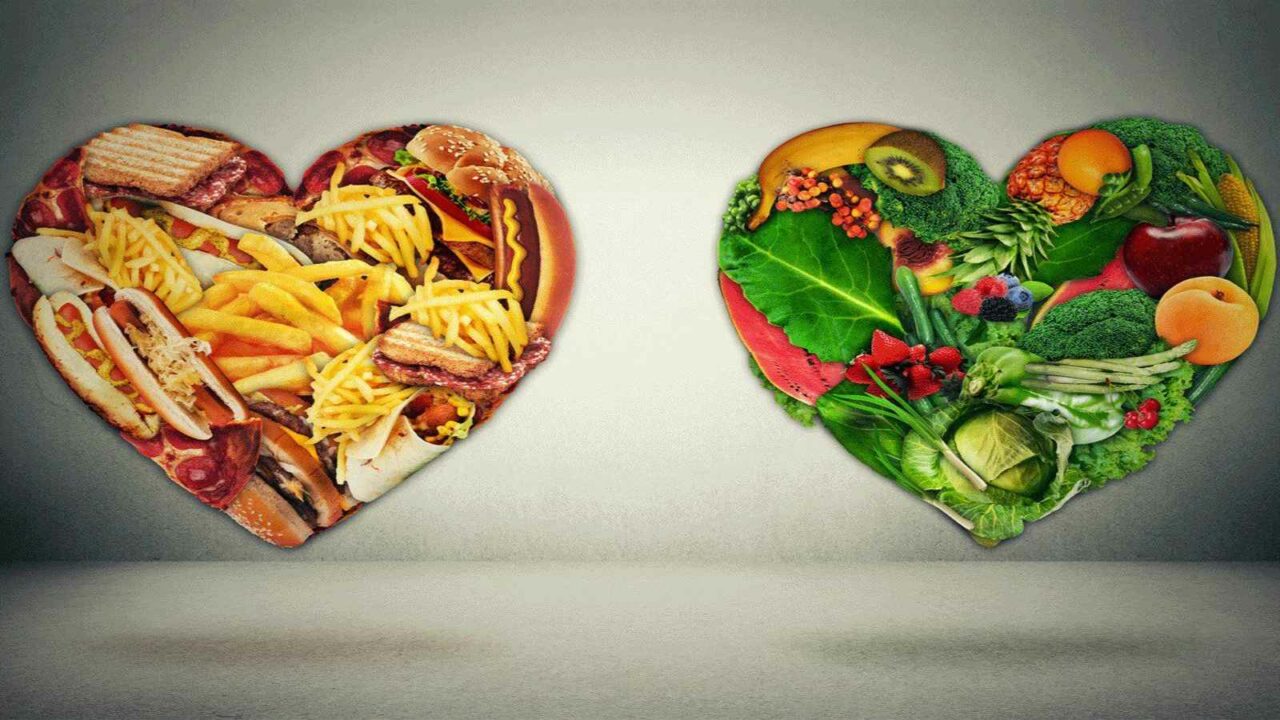It’s never too late to start making good choices for your heart health. In fact, by following a few simple guidelines, you can dramatically improve your chances of avoiding heart disease and other chronic conditions. In this article, we’ll outline the best and worst foods for your heart, and give you tips on how to incorporate them into your diet in a healthy way.
The Basic Components of a Heart-Healthy Diet
If you want to keep your heart healthy, make sure to follow a heart-healthy diet. A heart-healthy diet is one that includes plenty of fruits and vegetables, whole grains, low-fat dairy products, and fish. Here are five of the best foods for your heart health:
1. Fruits and vegetables: Fruits and vegetables are a great way to get your daily dose of antioxidants and vitamins. They also contain fiber which can help you regulate your blood sugar levels.
2. Whole grains: Whole grains are good for your heart because they are high in fiber and antioxidants. They also provide a good source of protein and other nutrients.
3. Low-fat dairy products: Low-fat dairy products are a good source of calcium and other nutrients that can help protect your heart health.
4. Fish: Fish is a good source of omega-3 fatty acids, which have been shown to be beneficial for your heart health. Fish also contains protein, potassium, and other nutrients that can help protect your heart.
5. Tea: Tea has been shown to improve cardiovascular health by reducing the risk of stroke and heart disease.
World Heart Day 2022: Date, History and Goals of the day
The Bad News on Foods That Are Bad for Your Heart
A diet high in saturated fats, cholesterol, and sugar is bad for your heart. So why do so many people continue to eat these unhealthy foods? According to cardiologist Dr. Mark Hyman, it’s because they don’t really understand the health risks associated with them.
He says that if you want to protect your heart, reduce your intake of saturated fat, cholesterol, and sugar as much as possible. These are the three worst foods for your heart health.
Saturated Fat: This type of fat is found in animal products like beef, lamb, pork, and butter. It can clog up your arteries and cause heart disease. In moderation, however, saturated fat can be beneficial because it provides essential fatty acids.
Cholesterol: This substance is made by the body and is essential for normal cell function. However, high levels of cholesterol can damage the walls of your arteries and lead to heart disease. To avoid heart problems, try to limit your intake of foods high in cholesterol such as eggs, nuts, and poultry.
Sugar: This type of carbohydrate is found in sweets like cake, candy bars, and doughnuts.
World Heart Day 2022: Treating the heart with scientific breakthroughs, lifestyle changes
The Good News on Foods That Are Good for Your Heart
What can you eat to ensure your heart health? Plenty of fruits and vegetables, whole grains, and low-fat proteins. Here are some specific foods that have been linked with better heart health:
Fruits and vegetables: A representative sample of five fruits and five vegetables provides enough antioxidants, vitamins, minerals, phytochemicals (plant chemicals), fiber, and water to meet the recommended daily intake for all nutrients for an adult woman. These include: spinach, kale, apples, grapefruit, oranges, carrots, sweet potatoes.
Whole grains: Whole grains offer both soluble (e.g., dietary fiber) and insoluble (e.g., bran) fiber which together have been linked with reduced risk of coronary heart disease. They also provide B vitamins (especially thiamin), magnesium, phosphorous, niacin (vitamin B3), potassium, zinc and selenium.
Low-fat proteins: Lean proteins including fish, poultry, legumes (beans), nuts/seeds (especially almonds), low-fat dairy products, eggs are a good source of essential fatty acids (EFAs) which are important for heart health because they help reduce bad cholesterol levels in the
How to Optimize Your Plate for Optimum Heart Health
Optimize your plate for optimum heart health by following these tips:
1. Limit saturated fats and cholesterol. Saturated fats can increase bad cholesterol levels, while cholesterol can increase the risk of heart disease. Opt for unsaturated fats instead, such as omega-3 fatty acids or monounsaturated fats.
2. Eat more fiber. A high-fiber diet is linked with a decreased risk of heart disease, obesity, and type 2 diabetes. Fiber can be found in grains, fruits, vegetables, legumes, and nuts.
3. Limit processed foods and added sugars. Processed foods are high in calories, sugar, and unhealthy additives. Additives like trans fat can increase your risk of heart disease. Instead eat unprocessed foods that are high in antioxidants and fiber to improve your heart health.
4. Be mindful of your sodium intake. Too much sodium can increase blood pressure levels and lead to heart problems. Aim to limit your sodium intake to less than 2,300 milligrams per day (mg/day). This will typically be found in foods like processed foods, restaurant meals, canned goods, and prepared soups and sauces.
Conclusion
The foods that are best for your heart health depend on a variety of factors, including your overall diet and exercise habits. However, some general guidelines that can help to improve your cardiovascular health include eating plenty of fruits and vegetables, choosing low-fat or nonfat dairy products, limiting saturated fats, and avoiding processed foods. If you want to take it one step further and reduce the risk of developing heart disease even further, adding antioxidant-rich supplements to your diet may be a good idea. So what’s on the menu for today? Let us know in the comments below!


















